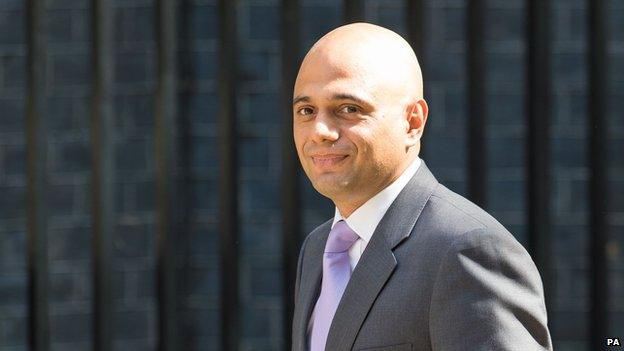New government – more change than meets the eye
- Published
At first sight it felt less like a reshuffle and more like a re-appoint with more than half of the old cabinet - and almost all those in the top jobs - keeping their old posts.
That is a reflection of David Cameron's long-held belief that ministers need time to master their briefs so moving them merely strengthens the hands of those inside and outside departments who are resisting their agenda.
It would be a mistake, however, to see only the continuity and not the change.
The prime minister wants his new majority government to prove that the Tory election slogan - the real party of working people - is just that.
Hence Tory HQ's desire to highlight the appointment as business secretary, Sajid Javid, whose father was a bus driver and a new party vice chairman, Robert Halfon, who's argued for what he calls blue collar conservatism.

Sajid Javid becomes business secretary in David Cameron's new Cabinet
That, though, is not the change that really matters.
It is the fact that there are no Liberal Democrats in this cabinet, there is no deputy prime minister, there is no "Quad" - in which David Cameron and George Osborne were forced to negotiate with Nick Clegg and Danny Alexander before any important policy could be announced.
This is a Tory cabinet unbound. The question that remains unanswered is how much that will change what they want and feel able to do.